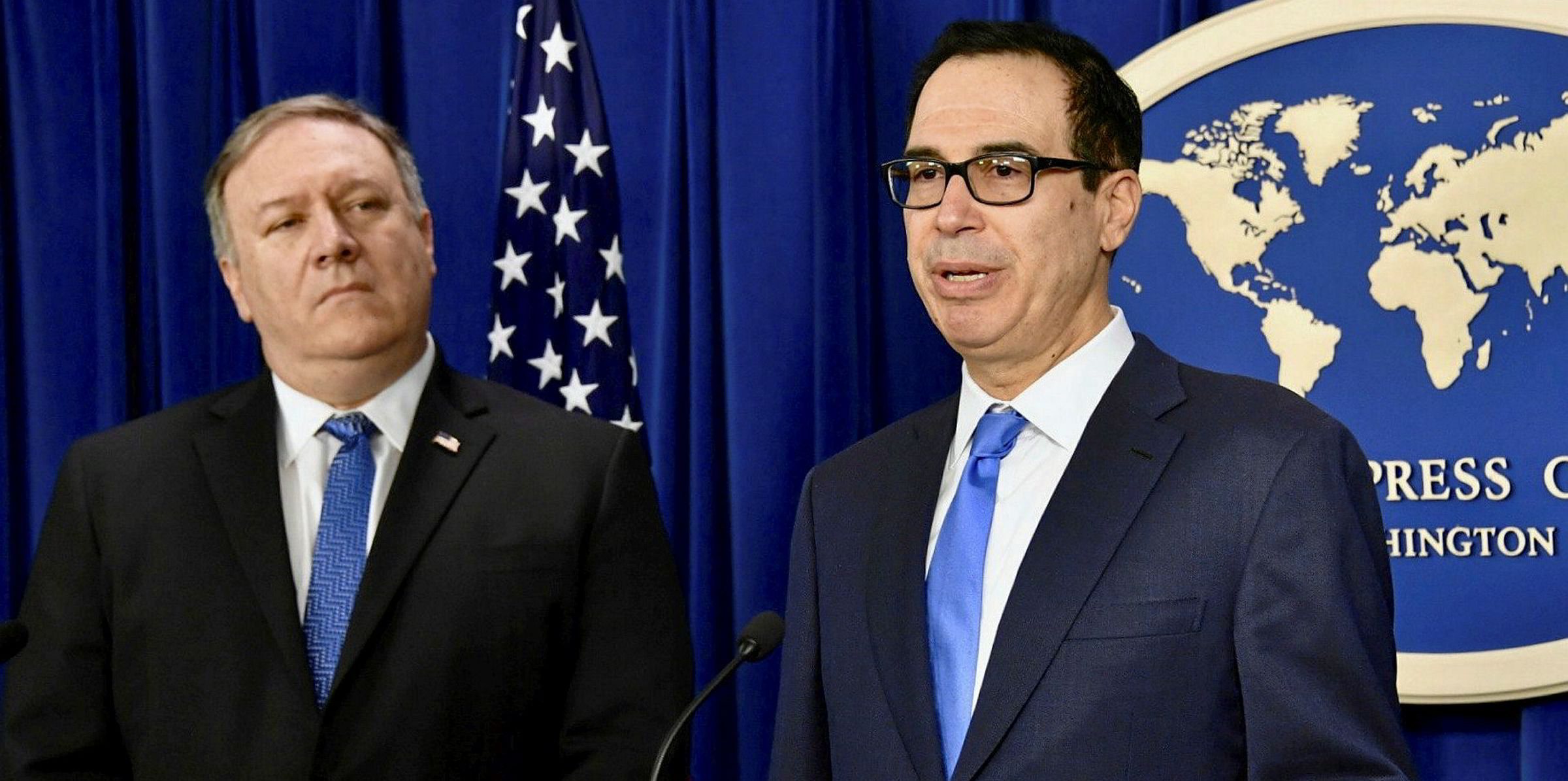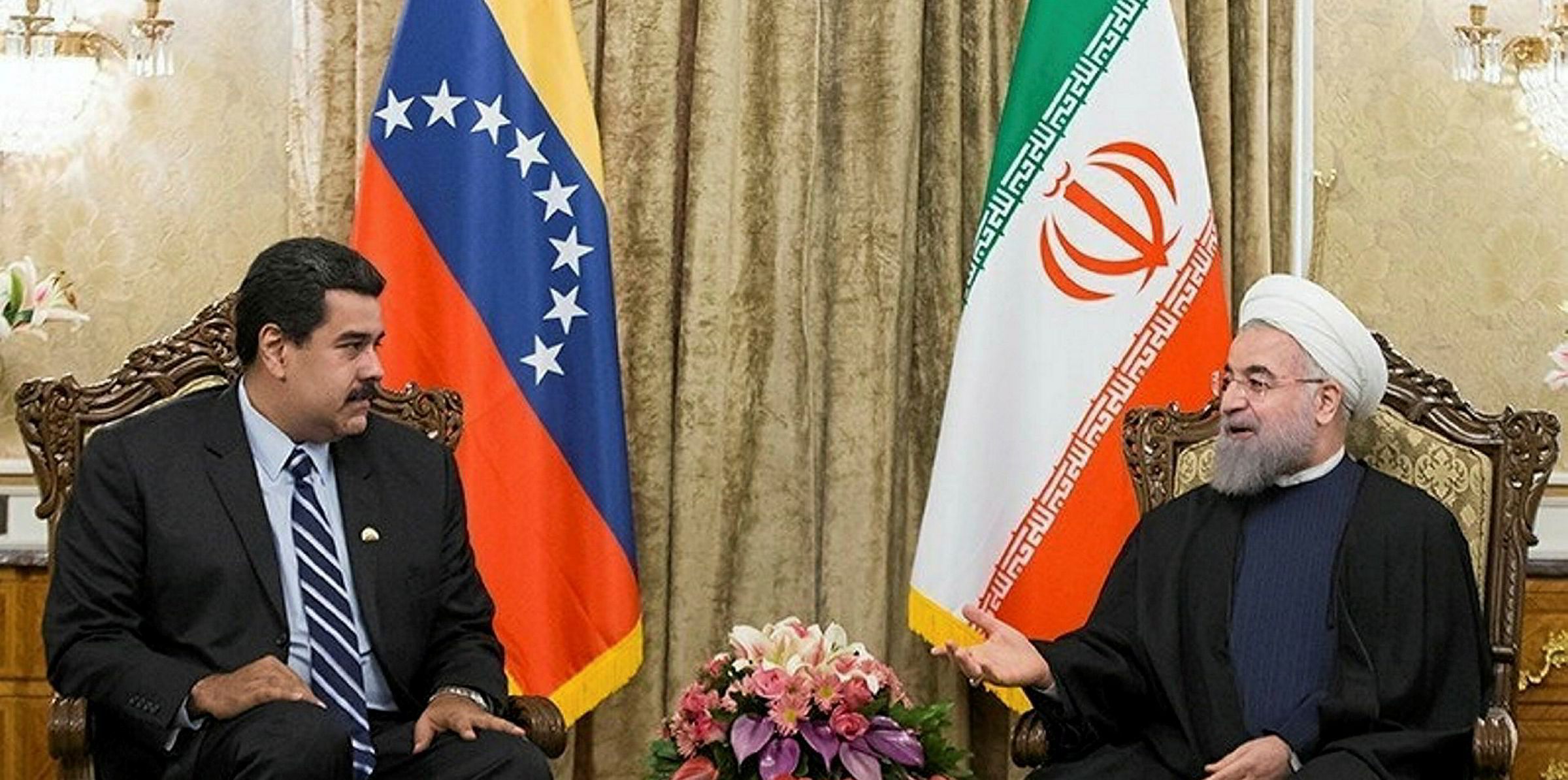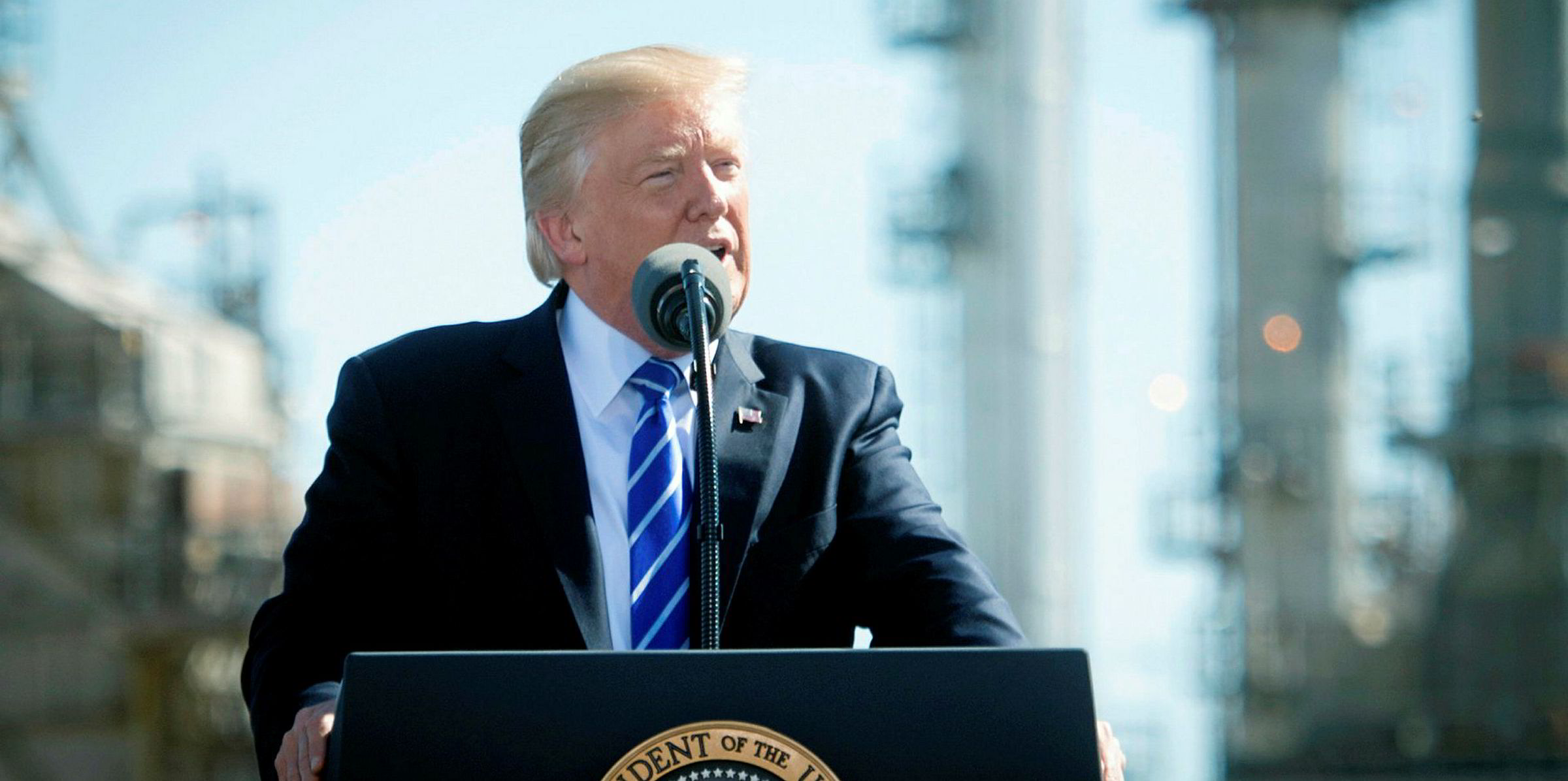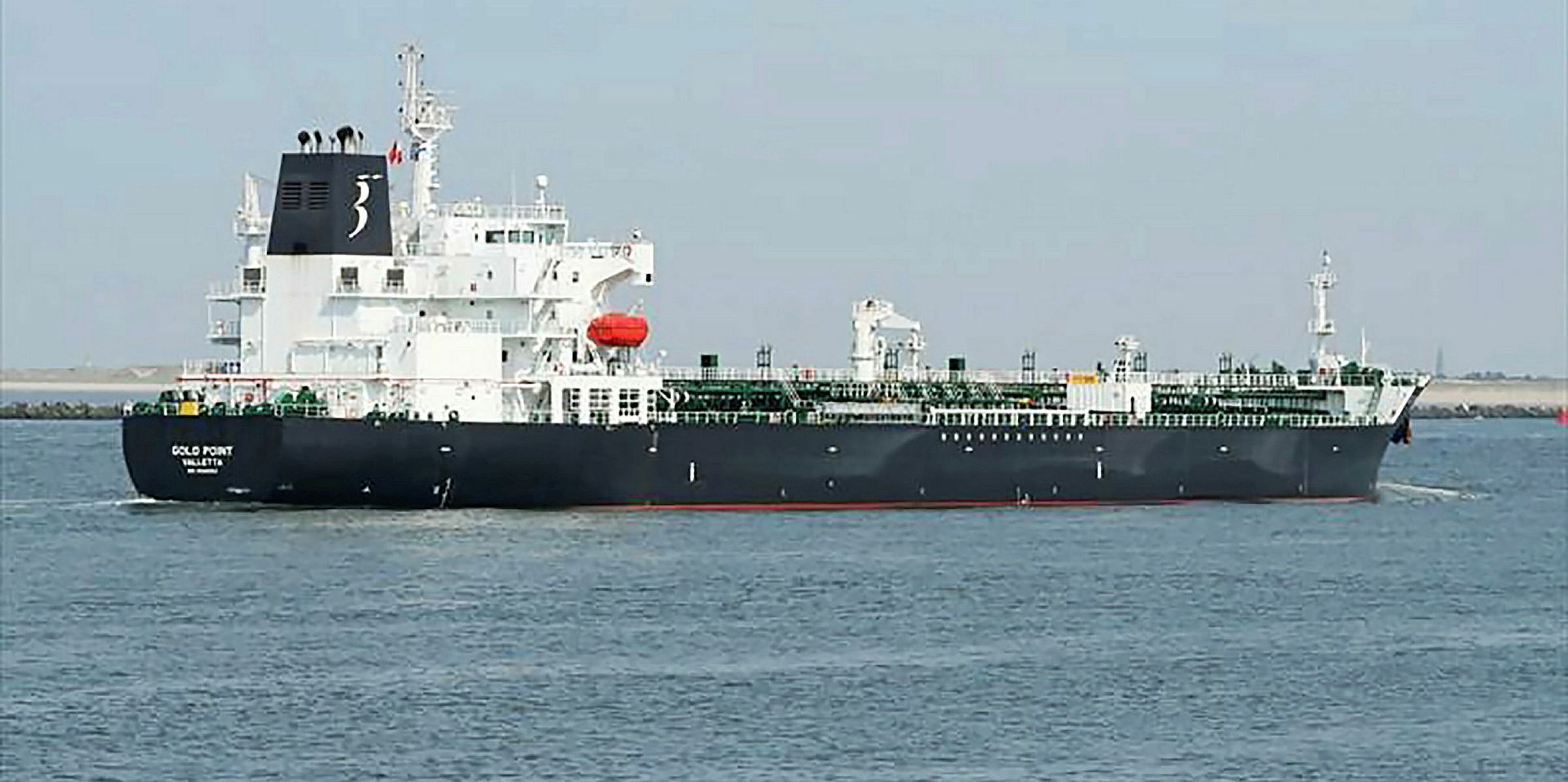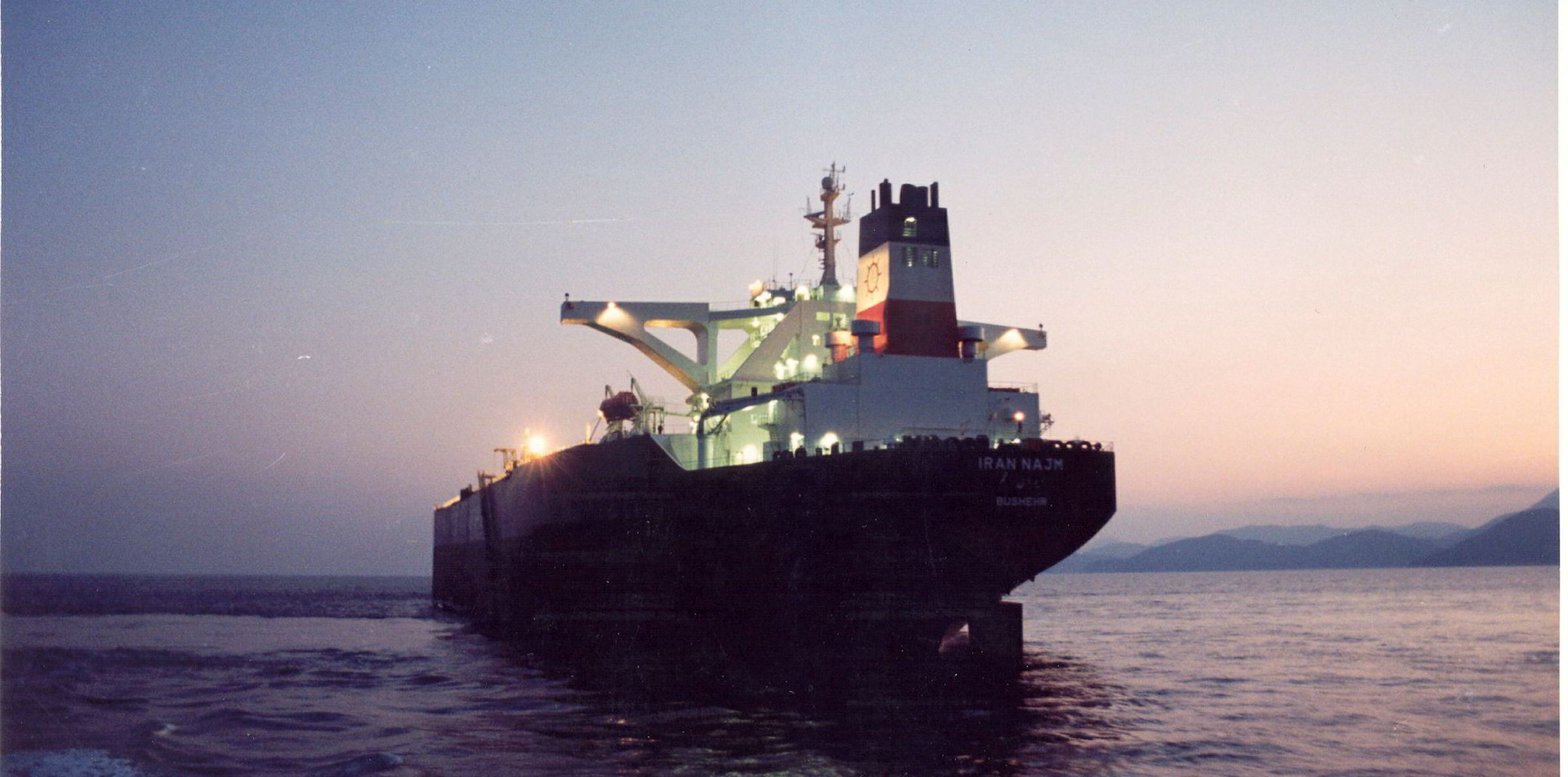The US Treasury Department put four large Greek-managed tankers on its Venezuela sanctions list on Tuesday, as Washington steps up enforcing rules designed to help overthrow the ruling regime in the South American country.
The Treasury's Office of Foreign Assets Control (Ofac), which manages the sanctions, included the oil carriers in its specially designated nationals (SDN) list for allegedly lifting oil from Venezuela between mid-February and late April.
The SDN list does not identify any of the shipmanagement companies by name but rather the entities that are the sanctioned ships' registered owners.
The vessels are:
- The 105,600-dwt Athens Voyager (built 2007), managed by Chemnav Navigation with Afranav Maritime as its registered owner.
- The 150,000-dwt Chios I (built 2017), managed by Dynacom Tankers Management with Seacomber as registered owner.
- The 306,500-dwt Seahero (built 2006), managed by Thenamaris and listed under registered owner Adamant Maritime.
- The 300,000-dwt Voyager I (built 2003), managed by NGM Energy and owned by Sanibel Shiptrade.
Officials at the four vessels’ shipmanagement companies did not immediately respond to a request for comment.
The targeting of the Greek tankers comes as Ofac increasingly focuses on shipping as one of the ways it can better enforce its sanctions.
In 2018 and 2019, more than 120 sanctions each year were levied against shipping companies, vessels and individuals.
On 18 May, the Treasury and State departments, as well as the US Coast Guard, released a detailed 35-page guideline outlining steps shipping companies can take to avoid running foul of sanctions regimes.
Last week, US officials warned the Greek owners of two small product tankers with sanctions if they continued their journeys to Venezuela. Late in April, an unidentified Greek tanker is believed to have helped Venezuelan tycoon Wilmer Ruperti bring in 150,000 barrels of petrol to help shortages in the country. The US move on Tuesday also comes as five Iranian product tankers arrived in Venezuela to provide fuel supplies to the cash-strapped country in a gasoline-for-gold barter deal.
The Iranian tankers made the journey unmolested by US naval forces in the region, which have grown in recent months on an ostensible anti-narcotics mission.
Limited impact
After the US put Cosco Shipping Tanker (Dalian) — one of the main subsidiaries of tanker giant Cosco Shipping Energy Transportation — on the sanctions list last year, spot VLCC earnings spiked to a record high of $300,000 per day.
According to VesselsValue, Chemnav, Dynacom, Thenamaris and NGM Energy together have 150 tankers totalling 22.9m dwt, including 27 VLCCs. This is even larger than Cosco Dalian’s fleet.
But most brokers do not believe freight markets will get a similar lift as charterers are not expected to avoid all tonnage managed by the four Greek firms.
“The Ofac sanctioned the special purpose corporations [the four ships’ registered owners], not the companies,” said one of them. “Charterers would avoid the four ships, not [the Greek managers] altogether.”
Another said: “I think the US is trying to avoid what happened last time by not sanctioning the entire fleet. The market impact of Cosco sanctions was too big, perhaps even exceeding the Ofac’s expectation.”
If charterers decide to be cautious and avoid all ships that have called in Venezuela in the past six months, spot VLCC earnings could be lifted to $80,000 per day from today’s level of $50,000, according to Clarksons Platou Securities.
Last October, major charterers including Unipec and ExxonMobil inserted legal wording in their freight contracts that effectively ban any tonnage linked to Venezuelan oil flows in the past year, but the legal terms were understood not to be strictly enforced.
Fearnley Securities said the latest sanctions’ market impact would be limited. It said instead all eyes would be on the Opec+ meeting which has been fast forwarded to 4 June.
The plan agreed in April was to increase production by 2m barrels per day in the second half, but there has been speculation that the group could extend the deeper cut for a few months, it added.
Brent was trading above the $40 per barrel mark on Wednesday morning on increased optimism that the group will extend its cuts at least through July.
Fearnley said VLCC rates dipped on Tuesday as the sentiment amongst owners changed and several started to offer discounts to last-done levels.
"Though the market looks relatively balanced on the face of it, sentiment can be an equally important driver as owners try to secure deals ahead of what we expect to be some challenging months ahead," it added.
